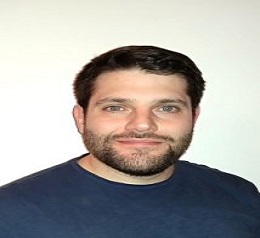Scholars International Webinar on:
Catalysis and Chemical Science
THEME: "The Role of New Technologies in the Fields of Catalysis and Chemical Science"
 24-25 Mar 2021
24-25 Mar 2021  Webinar | Virtual Meet | 11:00-17:00 GMT
Webinar | Virtual Meet | 11:00-17:00 GMT THEME: "The Role of New Technologies in the Fields of Catalysis and Chemical Science"
 24-25 Mar 2021
24-25 Mar 2021  Webinar | Virtual Meet | 11:00-17:00 GMT
Webinar | Virtual Meet | 11:00-17:00 GMT 
Vapourtec Ltd, UK
Title: Catalytic processes under continuous flow- Current trends and applications
Manuel
Nuño completed his MChem at Universidad de Zaragoza, Spain and York University,
UK moving to University of Bath, UK to undertake his PhD in photocatalysis
under the supervision of Dr Richard J. Ball.
Following
completion of his PhD, Manuel advanced his process improvement skills during
three years as process development chemist in food manufacturing industry
working to improve the performance of large scale batch and flow chemical
processes involving extraction, purification and crystallisation of sugars.
Early in 2019 Manuel moved to Vapourtec ltd as a research scientist, offering
applications and chemistry support to customer and product development teams.
Projects he has worked with include, photochemistry in flow, flow peptide
synthesis, organometallic chemistry in flow and continuous electrochemical
oxidation of natural products.
Flow
chemistry is a growing area in modern chemistry. Thanks to its ability to
perform faster reactions, ease of working with gases or unstable intermediates,
flow chemistry has attracted a lot of interest for a wide variety of
applications.
Probably
one of the best-known advantages of flow chemistry is the ability to safely run
high pressure-high temperature reactions (up to 200 bar), enabling to heat
reactions over the solvents’ boiling point. Flow reactions can then be
completed within minutes, instead of hours when working in batch.
Catalysed
reactions circumvent kinetics. By offering a lower energy pathway it does not
require extreme conditions and works very well in round bottom flasks. Although
it would not seem necessary to switch to a flow chemistry platform, the ability
to work with gaseous reagents under pressure, the precise control of reaction
conditions, or the wide range of inline analytical techniques, makes flow
chemistry an ideal vehicle to explore catalysed processes.
The
aim of this presentation is to describe different approaches to do catalysis in
flow, covering the technical aspects, advantages, and how to choose the most
suited approach. This presentation will cover examples from novel electrocatalysis
to catalytic hydrogenations in both homogeneous and heterogeneous systems.